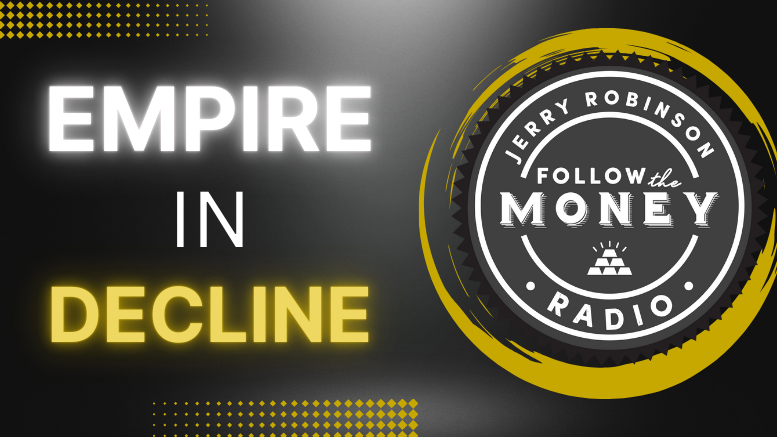by Jerry Robinson | FTMDaily Editor-in-Chief
HOUSTON, July 5
One of the greatest, and most imminent, financial challenges facing our great nation today is something many economists are calling the "retirement crisis." You probably know how the story goes: 78 million baby boomers all preparing to retire over the next twenty years with relatively little savings and mostly dependent upon a bankrupt U.S. government.
Indeed, a look at some statistics detailing the state of American retirement are grim.
- 36% of Americans said that they do not contribute to any retirement plan like a 401(k) or an IRA, often because they are living paycheck to paycheck. (Careerbuilder Survery 2009)
- While the average American has around $50,000 saved for retirement, over half of all Americans have less than $2,000 saved in their retirement account.
- One out of three working Americans does not have retirement savings beyond Social Security, and about 35% of those over 65 rely almost totally on Social Security alone. (Alliance for Investor Education)
These facts paint a bleak picture for America's financial future. After years of falling for the consumption trap, many aging boomers are now realizing that their dream of an early retirement is just that… a dream.
As a financial coach, and a former financial advisor, I have seen the retirement crisis up close and personal. I can tell you that these statistics are more real than I can say. Very few people have a financial plan. And many who do have a financial plan are widely exposed due to inadequate asset, income, and life protection.
I believe that most Americans will be in for a rude awakening as they near, and enter, their golden years.
New Government Study: 'Difficult Choices' Ahead
The Government Accountability Office (GAO) recently conducted a study to confront the concern of American retirees who outlive their income. The GAO sought to produce viable strategies for solving the problem.
Here's what the GAO found:
"Financial experts GAO interviewed typically recommended that retirees systematically draw down their savings and convert a portion of their savings into an income annuity to cover necessary expenses, or opt for the annuity provided by an employer-sponsored DB pension instead of a lump sum withdrawal. Experts also recommended that individuals delay receipt of Social Security benefits until reaching at least full retirement age and, in some cases, continue to work and save, if possible. For example, for the two middle net-wealth households GAO profiled with about $350,000 to $375,000 in net wealth, experts recommended purchase of annuities with a portion of savings, drawdown of savings at an annual rate, such as 4 percent of the initial balance, use of lifetime income from the DB plan, if applicable, and delay of Social Security. To navigate the difficult choices on income throughout retirement, they noted strategies depend on an individual’s circumstances, such as anticipated expenses, income level, health, and each household’s tolerance for risks, such as investment and longevity risk."
"Regarding the choices retirees have made, GAO found that most retirees rely primarily on Social Security and pass up opportunities for additional lifetime retirement income. Taking Social Security benefits when they turned 62, many retirees born in 1943, for example, passed up increases of at least 33 percent in their monthly inflation-adjusted Social Security benefit levels available at full retirement age of 66. Most retirees who left jobs with a DB pension received or deferred lifetime benefits, but only 6 percent of those with a DC plan chose or purchased an annuity at retirement. Those in the middle income group who had savings typically drew down those savings gradually. Nonetheless, an estimated 3.4 million people (9 percent) aged 65 or older in 2009 had incomes (excluding any noncash assistance) below the poverty level. Among people of all ages the poverty rate was 14.3 percent."
Quick Note on Annuities: One of the most stable forms of income that a person can create for retirement is an annuity. Often violently maligned in the mainstream press as being full of "high fees" and "high commissions," there are few financial products that can provide the same function that an annuity can: a stream of income that you can never outlive. Of course, if you want a lifetime stream of income that is guaranteed, it will cost you something. Many in the financial press today don't understand this most simple concept. Nothing is free. And if you want a guaranteed income for life, there will be fees. Those who do not wish to "pay any high fees" are welcome to stroll down to the Wall Street Casino and roll the dice. You might lose your entire nest egg, but at least you "saved money" on those "high fees."
The GAO study further reveals the aggregate income sources for the average household with someone who is 65 or older. Here's the breakdown:
Social Security = 36.5%
Employment Earnings = 29.7%
Pension or Annuity = 18.4%
Income from Assets = 12.7%
Other = 2.1%
Cash Public Assistance = 0.6%
The fact that Social Security payments are the highest source of income for retirees should raise a big red flag. Social Security is on the ropes, financially speaking. The entire program is based on antiquated data and its projections are completely unsustainable.
In my opinion, the only way that Americans today can take back their retirement is by committing themselves to financial education, creating and sticking to a financial gameplan, and by diversifying their income sources.
___________________________________________
Here at FTMDaily.com, we are working hard to create solutions for you during these difficult times of economic crisis. To view our current products, click here. We also invite your feedback and comments on how we may serve you better. Feel free to contact me directly at info@ftmdaily.com.
___________________________________________
In The News Today…
1. ROUBINI CALLS FOR QE3: The U.S. economy needs more fiscal stimulus in the short term because the economy remains weak, followed by measures to “deal with fiscal problems or you’re going to have a fiscal train wreck,” Nouriel Roubini said. We expected calls for QE3 to begin this week and expect the debate to intensify in the coming weeks.
2. EURO WATCH: The European Central Bank is set to hike euro zone interest rates to 1.5 percent on Thursday and is expected to show no sign of softening its hard-line stance that Greece must not be allowed to default on its debts. The ECB's second rate hike of the year is seen as a virtual certainty by financial markets after the bank's recent reiterations that it is in a mode of "strong vigilance" — a phrase traditionally used to signal a rate rise. Euro zone inflation remained at 2.7 percent in June, softer than expected but well above the ECB's preferred level of just under 2 percent. The bank will also not want to risk pulling its plans and sending the message that Greece's troubles are making it jittery about the wider recovery.
3. HOUSING WATCH: On Sunday, HUD Chief, Shaun Donovan, said that U.S. homes are the most affordable they’ve been in decades and prices may start to climb as soon as the third quarter. “It’s very unlikely that we will see a significant further decline,” Donovan said on a CNN. “The real question is when will we start to see sustainable increases. Some think it will be as early as the end of this summer or this fall.”
4. CHINA WATCH: China's local government debt may be 3.5 trillion yuan ($540 billion) larger than auditors estimated, potentially putting banks on the hook for deeper losses that could threaten their credit ratings, Moody's said on Tuesday. China's mountain of local government debt has long been seen as a major risk by investors. The worry is that slower growth in the world's second-biggest economy could set off a wave of loan defaults and hobble its banking system.
5. CHINA WANTS FACEBOOK : China wants to buy a huge chunk of Facebook, according to a source at a fund that buys stock from former Facebook employees.
Until tomorrow,
Jerry Robinson – FTMDaily.com
____________________________________________________
Jerry Robinson is an economist, published author, columnist, international conference speaker, and the editor of the financial website, FTMDaily.com. In addition, Robinson hosts a weekly radio program entitled Follow the Money Weekly, an hour long radio show dedicated to deciphering the week's economic news.






